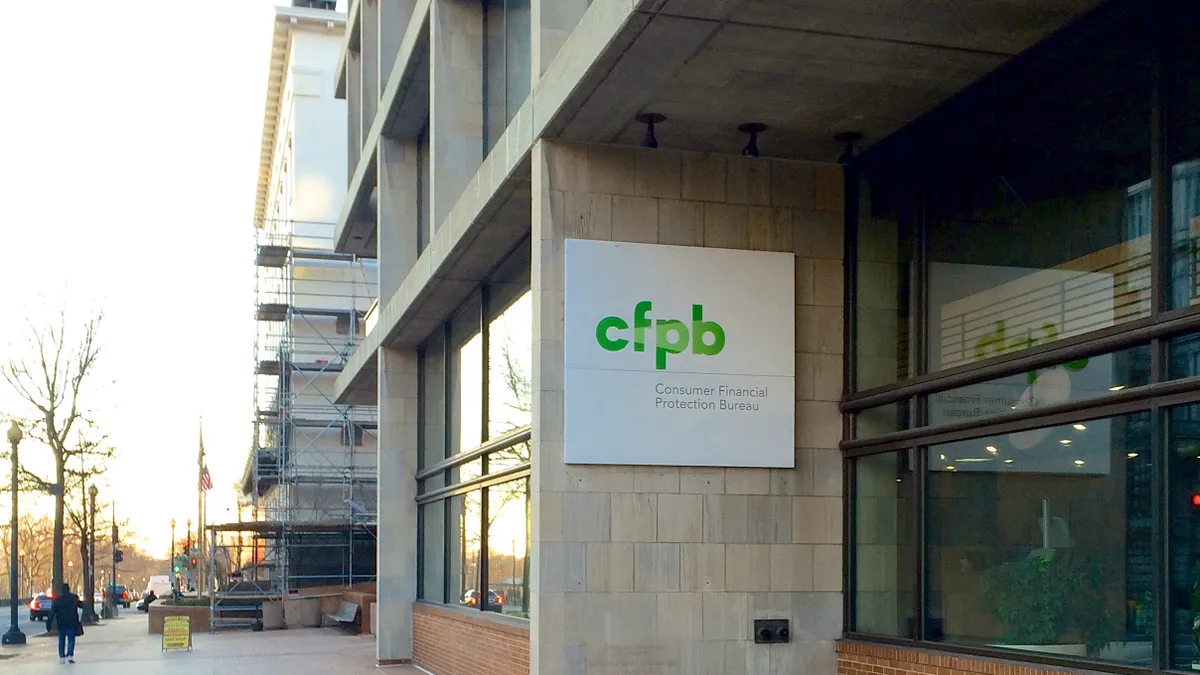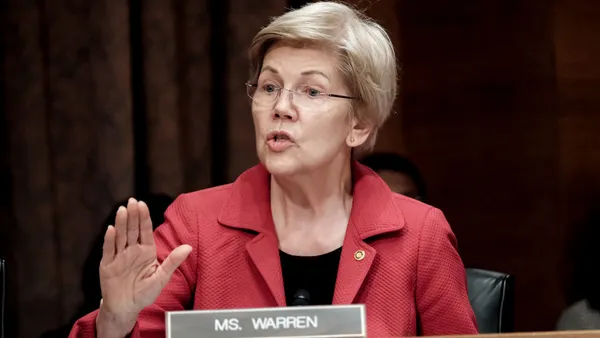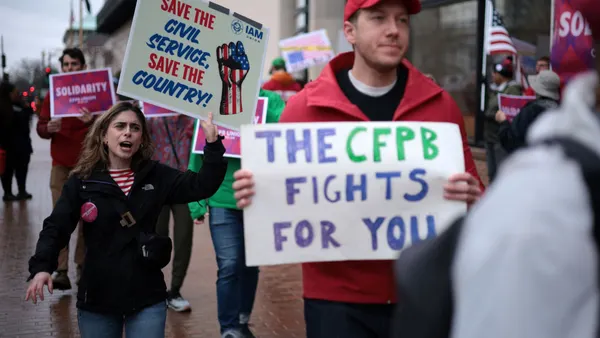More than 140 current and former Democratic lawmakers filed an amicus brief with the Supreme Court on Monday to defend the constitutionality of the Consumer Financial Protection Bureau’s funding structure.
The brief, led by Senate Banking Committee Chair Sherrod Brown, D-OH, and House Financial Services Committee Ranking Member Maxine Waters, D-CA, urged the Supreme Court to overturn the 5th Circuit Court of Appeals ruling last year that the bureau’s funding structure violates the Constitution’s separation-of-powers principles because the CFPB receives funds from the Federal Reserve and not Congress.
“As the United States explains, accepting the Fifth Circuit’s decision would place at risk a funding model that has been used since the early Republic, which now applies to the OCC and a host of other crucial federal programs,” the lawmakers wrote.
The U.S. Court of Appeals for the Second Circuit ruled in March that the CFPB’s funding structure is constitutional — upholding a lower court’s 2020 ruling in favor of the CFPB.
The amicus brief was also signed by former Sen. Christopher Dodd, D-CT, and former Rep. Barney Frank, D-MA — the two namesakes of the Dodd-Frank Act that created the CFPB.
“Armed with its assessment of what went wrong in the financial crisis, Congress determined that, to be effective, the CFPB needed independence from unpredictable annual funding cycles,” the lawmakers wrote. “By appropriating funds on a standing basis, rather than year by year, Congress matched the CFPB’s funding structure to the approach that it had already determined effective for other financial regulators, some going back over 150 years — but imposed more constraints on the CFPB.”
For example, the Office of the Comptroller of the Currency, like the bureau, is not funded through the annual congressional appropriation process. Unlike the CFPB, however, the OCC does not need to testify in front of Congress, the Democrats wrote.
CFPB regulations require a veto by the Financial Stability Oversight Council — an extra hurdle not required with OCC regulations.
“Congress’s long-exercised authority to structure appropriations as it sees fit to solve a wide array of national problems is as crucial now as it was at the Founding,” the lawmakers wrote.
In February, the Supreme Court agreed to hear the bureau’s appeal of the New Orleans-based 5th U.S. Circuit Court of Appeals. The case was brought in 2018 by two payday lender trade groups, the Community Financial Services Association of America and the Consumer Service Alliance of Texas.
The Supreme Court’s ruling in the case may determine whether the CFPB would be subject to the annual appropriation process, which could lead to variable funding for the agency depending on the party-line breakdown of lawmakers in Congress.












